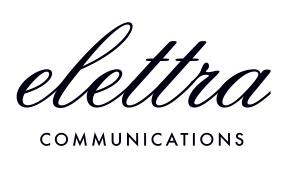Media Deluge: Tips for Handling a Flood of Interview Requests
While it’s usually PR professionals who are trying convince media outlets to interview their clients, certain events can cause the tables to turn and see media outlets reach out en masse to try to secure an interview. How do you handle such a situation? How do you ensure that your clients take advantage of this sudden media interest while not putting themselves at risk?
Over the years, Elettra has helped numerous clients navigate this very situation – one of the most recent cases being when we worked with Tiger King’s Dillon Passage (Joe Exotic’s current husband) to help him deal with the flood of interview requests that followed the release of the docuseries on Netflix.
Should you or your client ever find yourself buried under an avalanche of media requests, here are some tips on how to handle (and make the most of) the situation:
1. Create a system to handle incoming requests
While the deluge of media requests blowing up your inbox may feel overwhelming, setting up a system to manage them will help alleviate some of that stress and ensure that you are able to process and respond to these requests in an efficient and orderly way.
How you structure your system is a matter of personal preference, but a key component to include would be an interview request log to record incoming requests, centralize important information (like journalists’ contact info) and track the status of each request. Another key component would be a shared calendar document for your clients that you can use to schedule interviews on their behalf. Finally, you should have an agreed-upon method to inform/remind clients of upcoming interviews and provide them with the necessary contact details – whether via a daily email or a shared Google Doc.
2. Prepare the infrastructure and media tools that you will need
Before you start granting interview requests, it’s important have the right infrastructure in place. This means setting up a dedicated email address where journalists can direct their interview requests, if you haven’t done so already. That way, all requests will go to one place instead of being scattered between your clients’ personal email, social media channels and your inbox. You should also ensure that your clients get a dedicated phone number to use with the media. You don’t want reporters to get a hold of your client’s personal phone number, otherwise they may just call them directly the next time they want to do an interview.
With at-home Zoom/Skype interviews becoming the norm during the pandemic, you should also ensure that your clients have a dedicated space at home where they can do interviews. This space should be quiet, have an appropriate background and have a good internet connection.
As for media tools, you should anticipate what journalists might ask for. These might include a photo of your client that they can run with the story, b-roll footage that they can splice into a video interview or a fact sheet or one-pager on your clients and anything that they are promoting at the moment. For celebrity and rising-star clients, some media outlets will be happy to give a shout-out to your client’s latest project, product or initiative, so the more information you can provide them with, the better they will be able to incorporate it into their piece.
3. Vet media requests based on your clients’ objectives
Not all interviews are worth your time, especially if the amount of requests exceeds your clients’ ability or desire to do them. You should establish beforehand your clients’ communications objectives and evaluate interview requests based on how they contribute to these objectives. Things to consider could be the outlet’s audience size, how this audience overlaps with your clients’ audience, the story angle and how this outlet has reported on people like your client in the past.
Another consideration is timing. If you’re scheduling interviews a couple days or a week out, is there a chance that new information will be made public between now and then that might affect your clients’ willingness to do an interview? Do you need to prepare your client for any new questions that the media might ask?
4. Respond to all media requests, even the ones you’re rejecting
While the media is knocking down your door right now, that might not always be the case. One day, the roles may be reversed and you’ll be the one asking for coverage, which is why you should strive to maintain good relationships with all the media outlets that reach out to you – even if they are not ones that you want to move forward with right now. For media requests that you don’t intend on granting, respond with a short message thanking them for their interest and stating that you cannot grant an interview at this time. No need to give any further explanation. In fact, further explanation or excuses could spark a time-consuming back and forth with the reporter.
5. Be prepared for different media practices across countries
If your clients are doing interviews with international outlets, you may encounter some different media practices from what you are used to. For example, some British outlets will ask interview subjects to fill out a form that includes highly personal questions about their mental health, criminal record and family situation. The form is meant to protect interview subjects who may be experiencing mental health problems from being taken advantage of, but you and your clients might understandably not feel comfortable disclosing that type of information.
If you encounter a situation that seems strange or makes you uncomfortable, don’t be afraid to ask questions and push back. Outlets are usually willing to be flexible if it means securing an interview.

